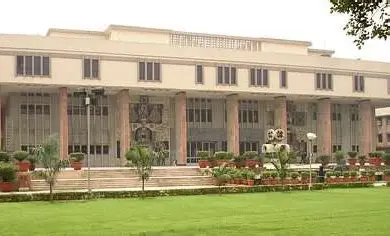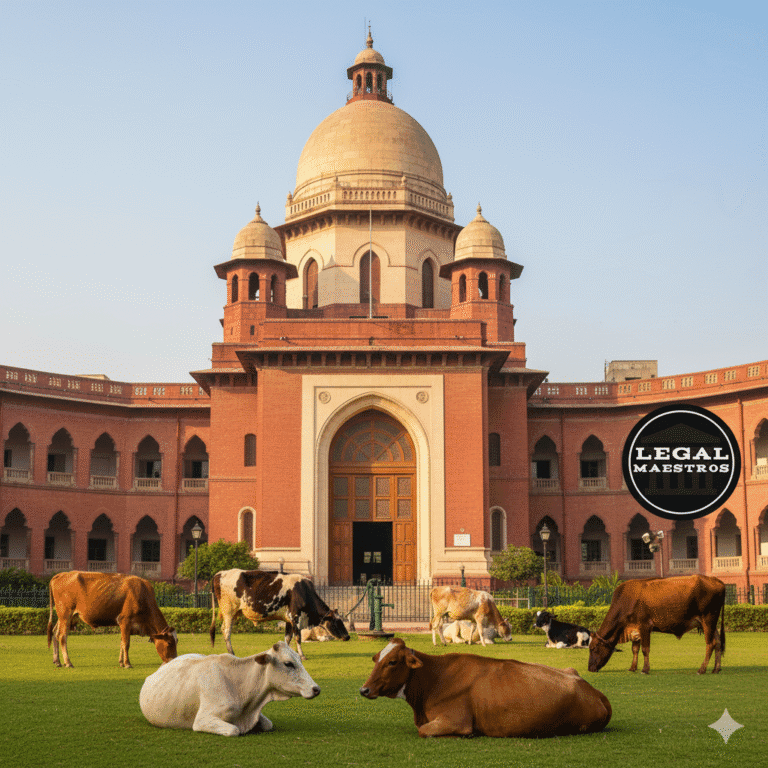
A major boost in the law on the tapping of phones comes with the Delhi High Court providing a new jurisprudence in the question on interception of telephones especially in large public interest and corruption cases. Issued in the case of Aakash Deep Chouhan Vs. CBI on June 26, 2025 this judgment has evolved the interpretation of statutory and constitutional protections as it relates privacy and surveillance in India.
Background of Legal context
In India, intercept of telephone calls was done traditionally under the framework of Indian Telegraph Act, 1885 and the Information Technology Act, 2000. These laws permit interception of messages in specific cases, especially those concerning public safety, or in the interest of the sovereignty and integrity of India. But the provisions have generally been narrowly interpreted, with courts harping about how the fundamental right to privacy, under Article 21 of the Constitution, needs to be safeguarded.
Down through the years, the courts have wrestled with the tension between the individual’s right to privacy and the state’s duty to deter crimes and maintain public order. Reiterating privacy as a fundamental right in K.S. Puttaswamy Vs. Union of India, the Supreme Court held that any invasion would have to be reasonable, proportionate and sanctioned by law.
For any queries or to publish an article or post or advertisement on our platform, do call at +91 6377460764 or email us at contact@legalmaestros.com.
The Aakash Deep Chouhan v. CBI Case
It was held in this case that any export of service to an SEZ is not exempt from tax along with the country. A writ petition was filed by petitioner questioning the legality of interception or phone tapping orders passed during the course of investigation of a chamous scam. The primary issue that arose before the Delhi High Court was whether tapping of phone calls, especially in cases involving corruption on a massive or systemic level could be countenanced by the present legal regime, which generally allowed for the same on grounds of “public safety” or “public emergency”.
Key Findings of the Court
In its judgment, the Delhi High Court waivers movement sought on this count being rejected.
- Liberalisation of “Public Safety”: The judge ruled that the definition of “public safety” is not rigid and is not limited to violence and terrorism. Rather, it may include cases where widespread corruption undermines the economic life of a people and function of the state, and lowers public confidence in institutions.
- Public Safety Corruption: In its opinion, the court specifically stated that systemic corruption, particularly if it involves substantial amounts of the public’s money or high-ranking officials, is a “great menace to the nation’s well-being” and is thus within the rubric of “public safety”.
- Statutory And Constitutional Safeguards: The Court, after holding that tapping of a phone in a case of this kind is legal, and after expressing its agreement with the Solicitor-general that the power of intercepting telephone communications is valuable for protection of national security, noted that all statutory or constitutional safeguards must be scrupulously attended to. This includes that interception orders are issued by an authority, that they are of limited duration and reviewed at regular intervals.
Implications of the Judgment
- Broader Investigative Powers: With the scope of “public safety” widened to fight large-scale corruption, the Delhi High Court tacitly gives investigative authorities a freer hand to tap conversations in the war against corruption. It is going to make it easier for agencies such as the CBI and Enforcement Directorate to collect evidence in intricate financial crimes and corruptions scams.
- Balancing Privacy and Public Interest: The judgement is the latest review from the court on the balance to be struck between privacy rights and the public interest. While it respend to mention the privacy (veil) and that it is unassailable, it is the permissibility of corruption and its perniciousness as being weakening the edifice of government and respect for the law and citizens. The ruling, then, is a compromise that attempts to harmonize the freedoms of the individual with the demands of justice and the welfare of society.
- Judicial Oversight and Safeguards: The Court, however, did not give under-covering agencies a blank check.” It emphasized the importance of adhering to strict procedural requirements, such as:
- Proper authorization by designated officials
- Recording is also done for reasons for interception.
- Stipulations covering the time and extent of surveillance
- Regular oversight to prevent abuse
These are to ensure that interception powers are not used arbitrarily or abusively and to guarantee accountability.
- Establishing A Precedent for All Future Trials: The Delhi High Court’s reading of the law is likely to have implications for other cases on surveillance and privacy amid economic offences. It establishes a precedent for courts to take into account the broader societal implications of corruption, when deciding matters involving telephone interception and surveillance.
- Reactions and Criticisms:
- The ruling has received varied reactions from legal experts, civil society and the public at large.
- Proponents say that the choice is no-nonsense and realistic, considering the creativity of corrupt forces and the difficulty police face in collecting evidence that holds up in court.
- Critics warn that broadening the power to spy, even with safeguards, risks infringing on basic rights and invites abuse if not closely supervised.
- Also, some privacy advocates have urged an even more open system with judicial supervision, for example, an independent review process to review interception orders in sensitive cases.
Conclusion
The judgement of the Delhi High Court in Aakash Deep Chouhan Vs. CBI is a critical milestone in Indian jurisprudence on surveillance, privacy and the crusade against corruption. In regarding grand corruption as a public safety menace, the Court has armoured the investigative institutions with a weapon and articulated yet again, the criticality of constitutional and statutory protections.
India In the backdrop of ongoing efforts to tackle the twin evils of corruption and violations of civil liberty, the guidelines contained in this judgment will provide a valuable reference point for law enforcement, policy-makers and the judiciary in India. The proof will be in the responsible and measured exercise of these expanded powers, so that seeking justice does not deny the fundamental rights that are part of the foundation of justice.
Key Takeaways
- The Delhi High Court has interpreted “public safety” to mean law and order to include “massive corruption” and therefore phone interception has been allowed in these cases.
- The decision makes clear the need for stringent observance of statutory and constitutional safeguards to prevent abuse of surveillance authority.
- The judgement is likely to have a far-reaching impact on the busting of graft cases in India.
Sources
- ‘High Court Broadens “Public Safety” to Include Economic Crime’ (The420.in, 27 June 2025)
https://the420.in/high-court-broadens-public-safety-to-include-economic-crime
- ‘Interception of Calls Valid to Prevent Corruption, Economic Scale of Offence Must Satisfy “Public Safety” Threshold: Delhi High Court’ (Live Law, 27 June 2025)
https://www.livelaw.in/news-updates/interception-calls-corruption-public-safety-delhi-hc-231596
- ‘Madras HC’s Verdict on Phone Tapping and Right to Privacy’ (SCC Times, 2023)
https://www.scconline.com/blog/post/2023/08/20/madras-hc-verdict-on-phone-tapping-and-privacy
- ‘Interceptions Were Lawful; Transcripts Can’t Be Discarded: Delhi High Court Refuses to Order Destruction of Intercepted Call Recordings in Corruption Case’ (Bar & Bench, 27 June 2025)
https://www.barandbench.com/news/litigation/delhi-hc-interception-call-transcript-corruption-case








1 thought on “Delhi High Court Extends Interception of Phones to Corruption Cases”